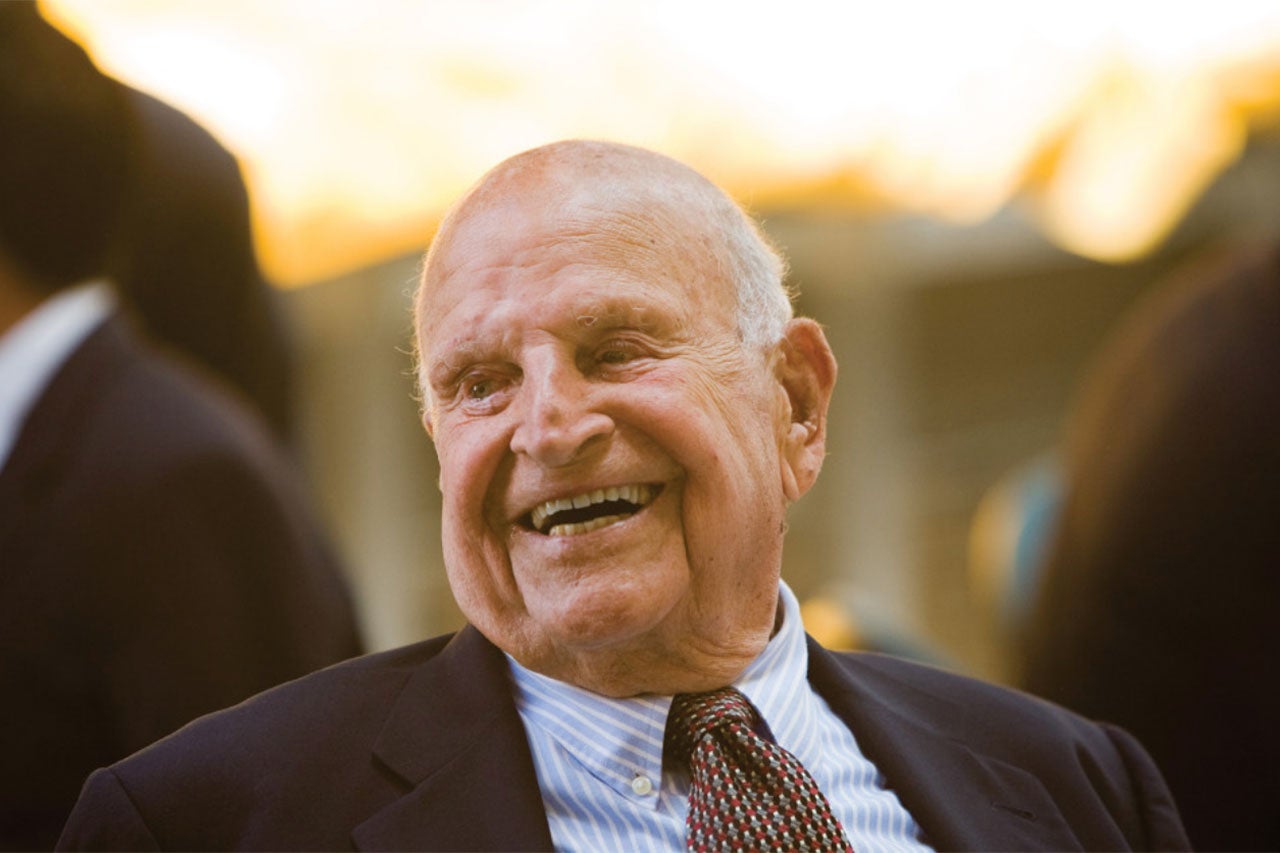When Theodore “Ted” S. Stern became the College of Charleston’s 16th president in 1968, the College was integrating the campus and facing a financial crisis. Stern proved to be just the right person to get the College through the hardships and move it forward.
A visionary who knew how to make the College grow, Stern transformed the College from a small, private, financially insolvent institution of 481 students to a public liberal arts college of more than 5,000 undergraduates by the time he “retired” in 1978. During his 10 years in office, Stern grew the annual operating budget from $700,000 to more than $13 million, with an annual impact on the region’s economy of $38 million.
Stern’s ability to transform the College comes as no surprise to his daughter, Tippy Stern Brickman.
“My father saw everything as a challenge, so he took on growing and diversifying the College with gusto; he was the quintessential change agent,” she says. “He led by example and encouraged people to accomplish and achieve. By inspiring others, he was able to grow the College.”
It was her father’s upbringing that gave him the chops to succeed. He grew up in New York City in a time of anti-Semitism in a neighborhood with what he described as “ruffians.” Stern went on to join the Navy, where he met people from all walks of life, giving him a better understanding of others. He wanted College of Charleston students to be exposed to the same breadth of experience and varying perspectives that he’d been.
“My father wanted to make sure students were scholars and interested in the community,” says Brickman. “He wanted them to be well-rounded and leaders – people who would be comfortable in any situation.”
Up until his death in 2013, Stern kept the importance of civic contribution and societal equality top of mind. To continue his legacy of creating well-rounded leaders at the College, he and his wife established the Theodore S. and Alva D. Stern Endowed Scholarship.
Dylan Vaughan ’19 received the first scholarship in 2017, with two class of 2020 students following him – and all three recipients have been impacted by Stern’s life lessons in leadership and the value of giving to others.
In life, Stern took every opportunity to have a teaching moment with people. He encouraged active disagreement and would give guidance often without people knowing it.
To this day, Erna Womble ’78 (M.Ed. ’81) often thinks back on President Stern’s personal visionary leadership and his style of extraordinary problem-solving and decision-making. She remembers his drive and determination to expand the College’s campus and engage in wide-ranging discussions to absorb divergent views while staying laser-focused on achieving goals for the College of Charleston and the state of South Carolina.
“Throughout the time I was an undergrad, grad and employee of the College, I learned much from the way he elicited sophisticated reasoning and encouraged articulate and civil expression of complex, emotional and controversial topics,” says Womble, who came to the College from a cosmopolitan town in the pristine Himalayas.
Gus Gustafson ’75 also benefitted from Stern’s influence. A student-athlete, he remembers how the Sterns opened their home to students and faculty. Twice, when he had to stay on campus over Thanksgiving because of a basketball game, the Sterns hosted the entire team and coaches for a meal.
“Ted was and is to this day the most dynamic man I ever met,” Gustafson continues. “He was a forward thinker with a gift at forming strong relationships and getting everyone on board.”
When Gustafson looks at the College today, he knows President Stern would be very pleased with the high-quality faculty, students and programs. His vision became a reality.
Now, Stern continues his legacy through his scholarship, which gives students the opportunity to take advantage of all the College has to offer – opportunities for friendship and a quality education.
As President Stern once said, “I look forward to doing something to help others because I think that’s the only real joy you get in life – by giving of yourself to benefit others.”
Read the full story on Momentum, CofC’s digital philanthropy publication.




